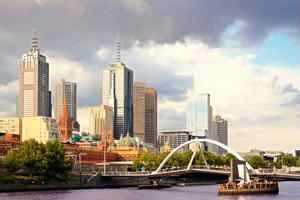
The Victorian State Budget for 2024/25 focuses on creating a fairer, stronger and more connected community. It reflects a comprehensive approach to enhancing the quality of life for all Victorians, with strategic investments across various sectors. Let's take a closer look at how they plan to achieve these goals.
Tax reforms and economic development
The budget introduces significant tax reforms and support measures aimed at stimulating economic growth and providing relief to businesses and individuals:
- Stamp Duty Reform: A progressive abolition of stamp duty on commercial and industrial properties to stimulate real estate investment and mobility.
- Support for Small Businesses: Raising the payroll tax-free threshold from $700,000 to $900,000 starting in July 2024 and to $1 million by July 2025, benefiting about 28,000 small businesses either by eliminating or reducing their payroll tax.
Supporting energy transition and cost reductions
To directly impact the household budgets of Victorians, the budget dedicates funds to various initiatives aimed at reducing the cost of energy consumption:
Electric heat pumps and solar hot water systems: With a dedicated $38 million, the government is helping Victorian households install electric heat pumps and solar hot water systems. These systems are more energy-efficient than traditional methods, potentially saving families up to $400 annually on their electricity bills.
Solar battery storage systems: An investment of $6.1 million is designated to facilitate interest-free loans for eligible households to install solar battery storage. This technology allows families to store solar energy generated during the day and use it during peak hours, reducing reliance on the grid and decreasing energy costs.
Victorian energy upgrades program: The budget provides $5.9 million to enhance this program, which encourages Victorians to adopt more energy-efficient products. This lowers energy bills and contributes to reducing the environmental impact.
Updates on housing and economic strategy
The recent adjustments in Victoria's housing policies and economic strategies reflect a concerted effort to bolster the housing market and stabilise the state's economy. These changes are designed to support homebuyers, particularly in regional areas, and forecast a steady recovery from current economic challenges.
Key changes include:
- Homebuyer support: An extra $700 million is added to the state's homebuyer fund, which will soon be replaced by the federal Help to Buy program. This increases support for home purchases up to $700,000.
- Economic forecast: The government predicts a gradual recovery in the housing market, expecting a return to surplus by 2025 after a $2.5 billion deficit. Home prices are projected to increase by an average of 5% annually over the next few years, with property sales volumes surpassing pre-pandemic levels.
- Stamp Duty Revenue: Forecasted to grow from $8.3 billion in 2024 to $10.2 billion by 2027-28, indicating a rebound in this major revenue stream as the housing market improves.
Creative and cultural activities
The Victorian government is dedicating significant funds to sustain and invigorate the state's arts scene:
Major cultural institutions: An investment of $128 million will support major cultural venues, including the National Gallery of Victoria, Arts Centre Melbourne and other museums and galleries. This funding helps these institutions continue to offer rich cultural experiences and contributes to economic vitality.
Live music initiative: To boost the live music sector, the budget includes support for venues to host 10,000 live performances. This funding aims to get musicians back on stage and provide audiences with the live entertainment they've been missing, revitalising venues affected by economic challenges.
Additional budget allocations include:
- $6.5 million to support various creative festivals and cultural events across the state.
- $5 million to encourage local film and digital gaming projects, supporting growth in these creative industries.
- $4.5 million to continue supporting arts organisations within Victoria, helping them thrive and engage communities.
- An additional $1 million will be used to maintain support for over 800 music projects, assisting local artists and collectives in developing their skills and broadening their reach.
Diversity and inclusion
A total of $52 million is earmarked to strengthen the state's multicultural framework. This includes $5 million specifically designated to improve the social and economic well-being of Victorians with African heritage. An additional $11 million will boost funding for community language schools, and $3.9 million will support the demand for interpreting and translating services in educational settings.
Gender equality remains a priority, and ongoing efforts are being made to ensure that women have equitable access to health services and economic opportunities. This includes continued support for programs that allow women to return to work by providing affordable early childhood education through initiatives like the Free Kinder program.
Community sports and infrastructure
The budget commits $18 million to improve sports infrastructure. This includes:
- $8 million for community sports grants to develop more sports and recreation facilities.
- $4.2 million to upgrade football and netball facilities in rural, regional and outer metro areas.
- $5 million dedicated to building and upgrading pavilions, sports fields and courts.
- $300,000 will be provided to continue supporting basketball accessibility and programs across Victoria.
These investments aim to make sports more accessible to Victorians across the state, encouraging active lifestyles and community engagement.
Reflecting on the Victorian State Budget 2024/25
The Victorian State Budget for 2024/25 targets significant improvements across the board with focused investments in housing, cultural activities and tax reforms. It includes a substantial boost to the state's homebuyer fund to support more accessible home ownership. It also introduces a major reform: the abolition of stamp duty on commercial properties to stimulate economic activity.
Further investments are directed towards enhancing community sports facilities and supporting diverse communities. As the initiatives are implemented, the overall impact of these allocations on Victoria's economic landscape and the quality of life for its residents will become clearer.



